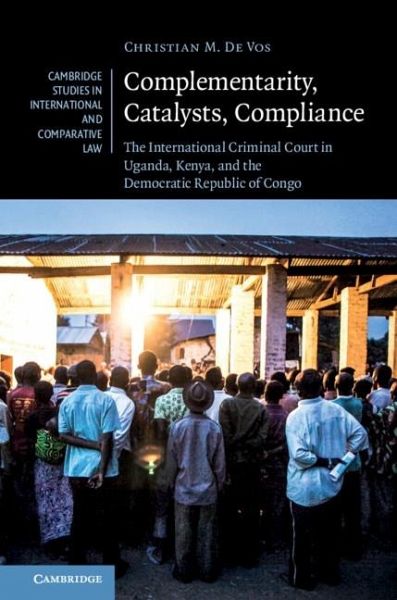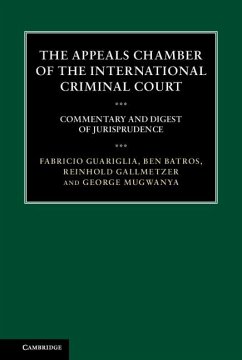
Complementarity, Catalysts, Compliance (eBook, ePUB)
The International Criminal Court in Uganda, Kenya, and the Democratic Republic of Congo
Versandkostenfrei!
Sofort per Download lieferbar
70,95 €
inkl. MwSt.
Weitere Ausgaben:

PAYBACK Punkte
35 °P sammeln!
Since its establishment at the turn of the century, a central preoccupation of the International Criminal Court (ICC) has been to catalyse the pursuit of criminal accountability at the domestic level. Drawing on ten years of research, this book theorizes the ICC's principle of complementarity as a transnational site and adaptive strategy for realizing an array of ambitious governance goals. Through a grounded, inter-disciplinary approach, it illustrates how complementarity came to be framed as a 'catalyst for compliance' and its unexpected effects on the legal frameworks and institutions of th...
Since its establishment at the turn of the century, a central preoccupation of the International Criminal Court (ICC) has been to catalyse the pursuit of criminal accountability at the domestic level. Drawing on ten years of research, this book theorizes the ICC's principle of complementarity as a transnational site and adaptive strategy for realizing an array of ambitious governance goals. Through a grounded, inter-disciplinary approach, it illustrates how complementarity came to be framed as a 'catalyst for compliance' and its unexpected effects on the legal frameworks and institutions of three different ICC 'situation countries' in Africa: Uganda, Kenya, and the Democratic Republic of Congo. Linking complementarity's law and practice to contemporary debates in international law and relations, the book unsettles international law's dominant progressive narrative. It urges a critical rethinking of the ICC's politics and a reorientation towards international criminal justice as a project of global legal pluralism.
Dieser Download kann aus rechtlichen Gründen nur mit Rechnungsadresse in A, B, BG, CY, CZ, D, DK, EW, E, FIN, F, GR, HR, H, IRL, I, LT, L, LR, M, NL, PL, P, R, S, SLO, SK ausgeliefert werden.













